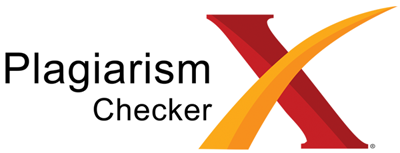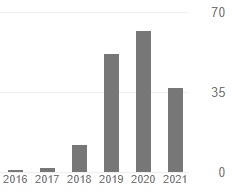Peningkatan Hasil Belajar Melalui Model Pembelajaran Inkuiri Laboratorium pada Materi Asam, Basa, dan Garam di Sekolah Menengah Pertama
Abstract
Keywords
Full Text:
PDFReferences
Joyce, B and Weil, M. (1972). Models of Teaching. Boston: Allyn and Bacon
Amin, M. (1987). Mengajarkan Ilmu Pengetahuan Alam (IPA) Dengan Menggunakan Metode “Discovery” dan “Inquiry”. Jakarta: Depdikbud Dirjen Dikti Proyek Pengembangan Lembaga Pendidikan Tenaga Kependidikan.
Arikunto, S. (1989) Dasar-dasar evaluasi Pendidikan Jakarta: Rineka Cipta
Cobern, William W., and Glen Aikenhead. (1997) Cultural Aspects of Learning Science. National Association for Research in Science Teaching. Chicago, IL
Cunningham, S. C., McNear, B., Pearlman, R. S., & Kern, S. E. (2006). Beverage-agarose gel electrophoresis: an inquiry-based laboratory exercise with virtual adaptation. CBE—Life Sciences Education, 5(3), 281-286.
Dimyati dan Mudjiono. (2002). Belajar dan Pembelajaran. Jakarta: PT. Rineka Cipta.
Hodson. D. (1996). “Practical Work in School Science: Exploring Some Directions for Change”. International Journal of Science Education (11). 541 – 553
Ketpichainarong, W., Panijpan, B., & Ruenwongsa, P. (2010). Enhanced learning of biotechnology students by an inquiry-based cellulase laboratory. International Journal of Environmental and Science Education, 5(2), 169-187.
Khan, M. (2012). The Development of Scientific Attitude in Secondary School Biology Teaching. Language in India, 12(5).
Nurohman, S. (2007). Pendekatan project based learning sebagai upaya internalisasi scientific method bagi mahasiswa calon guru fisika. Tersedia: http://staff. uny. ac. id [20 Oktober 2015].
Schlenker, R. M., & Schlenker, K. R. (2000). Integrating science, mathematics, and sociology in an inquiry-based study of changing population density. Science Activities: Classroom Projects and Curriculum Ideas, 36(4), 16-19.
DOI: https://doi.org/10.24114/jpb.v7i3.10871
Article Metrics
Abstract view : 274 timesPDF - 196 times
Refbacks
- There are currently no refbacks.

This work is licensed under a Creative Commons Attribution 4.0 International License.
............................................................................................................................................................................................................................................................................................................................

Jurnal Pendidikan Biologi: Journal of Biology Education by Department of Biology Education, Program Pascasarjana, Universitas Negeri Medan. Dikelola oleh Jurnal Universitas Negeri Medan is licensed under a Creative Commons Attribution 4.0 International License. p-ISSN (Print) 2086-2245 | e-ISSN (Online) 2502-3810

